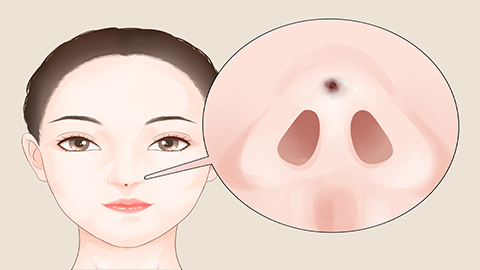What causes itchy nostrils?
Generally, itchy nostrils may be caused by environmental irritants, bad habits, vestibular rhinitis, acute rhinitis, sinusitis, or other factors. If discomfort occurs, timely medical attention is recommended. The specific analysis is as follows:

1. Environmental Irritation
When there are large amounts of dust, pollen, willow fluff, and other tiny particles in the air, these substances may enter the nasal cavity with breathing, causing a sensation of itchy nostrils. It is recommended to reduce outdoor exposure during special periods such as pollen season or haze days. If going outside is necessary, wear a professional protective mask.
2. Bad Habits
Habitual behaviors such as frequent nose picking may damage the nasal mucosa, leading to discomfort symptoms such as nasal itching and pain. It is recommended to correct this bad habit and maintain nasal hygiene by using normal saline to rinse the nasal cavity.
3. Vestibular Rhinitis
Vestibular rhinitis is mostly caused by increased nasal secretions that repeatedly irritate the skin of the nasal vestibule. The inflammation may stimulate nerve endings in the nasal vestibule, causing itchy nostrils. Symptoms such as redness, swelling, and pain may also occur. Treatment options include zinc oxide ointment, mupirocin ointment, levofloxacin tablets, and other medications under a doctor's guidance.
4. Acute Rhinitis
Acute rhinitis is primarily caused by viral infections, such as rhinovirus or influenza virus. After invading the nasal mucosa, the virus triggers an inflammatory response, leading to nasal mucosal congestion, edema, and inflammatory secretions. These inflammatory secretions may stimulate nerve endings on the nasal mucosa, resulting in itchy nostrils. Symptoms such as nasal congestion and runny nose may also accompany. Patients may use medications such as Qianbo Rhinitis Tablets,赛洛唑啉 nasal spray (hydrochloride), loratadine tablets, and others according to medical advice.
5. Sinusitis
Sinusitis can be triggered by upper respiratory tract infections, with possible causative agents including bacterial, viral, or fungal infections. Infection leads to inflammation of the sinus mucosa and produces large amounts of purulent secretions. These secretions flow backward into the nasal cavity, irritating the nasal mucosa and causing itchy nostrils. Symptoms such as headache and reduced sense of smell may also occur. Patients may use medications such as amoxicillin clavulanate potassium tablets, mometasone furoate nasal spray, ephedrine hydrochloride nasal drops, and others under a doctor's recommendations.
In daily life, attention should be paid to strengthening exercise, enhancing personal immunity, and improving the body's resistance to diseases. Ensure proper indoor air circulation by regularly opening windows for ventilation, thus reducing the accumulation of indoor pathogens and allergens.






